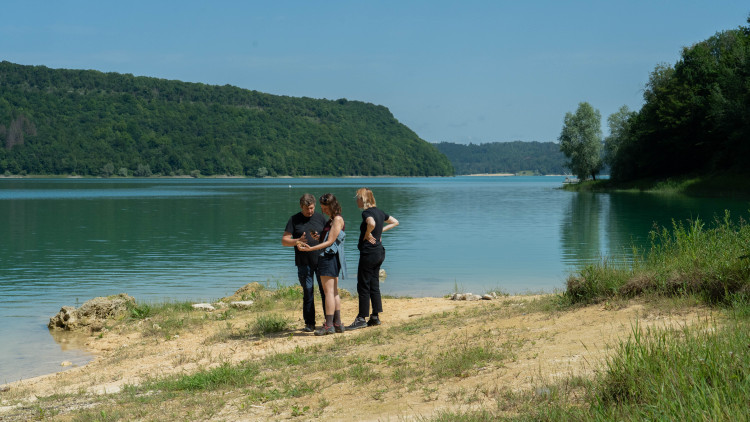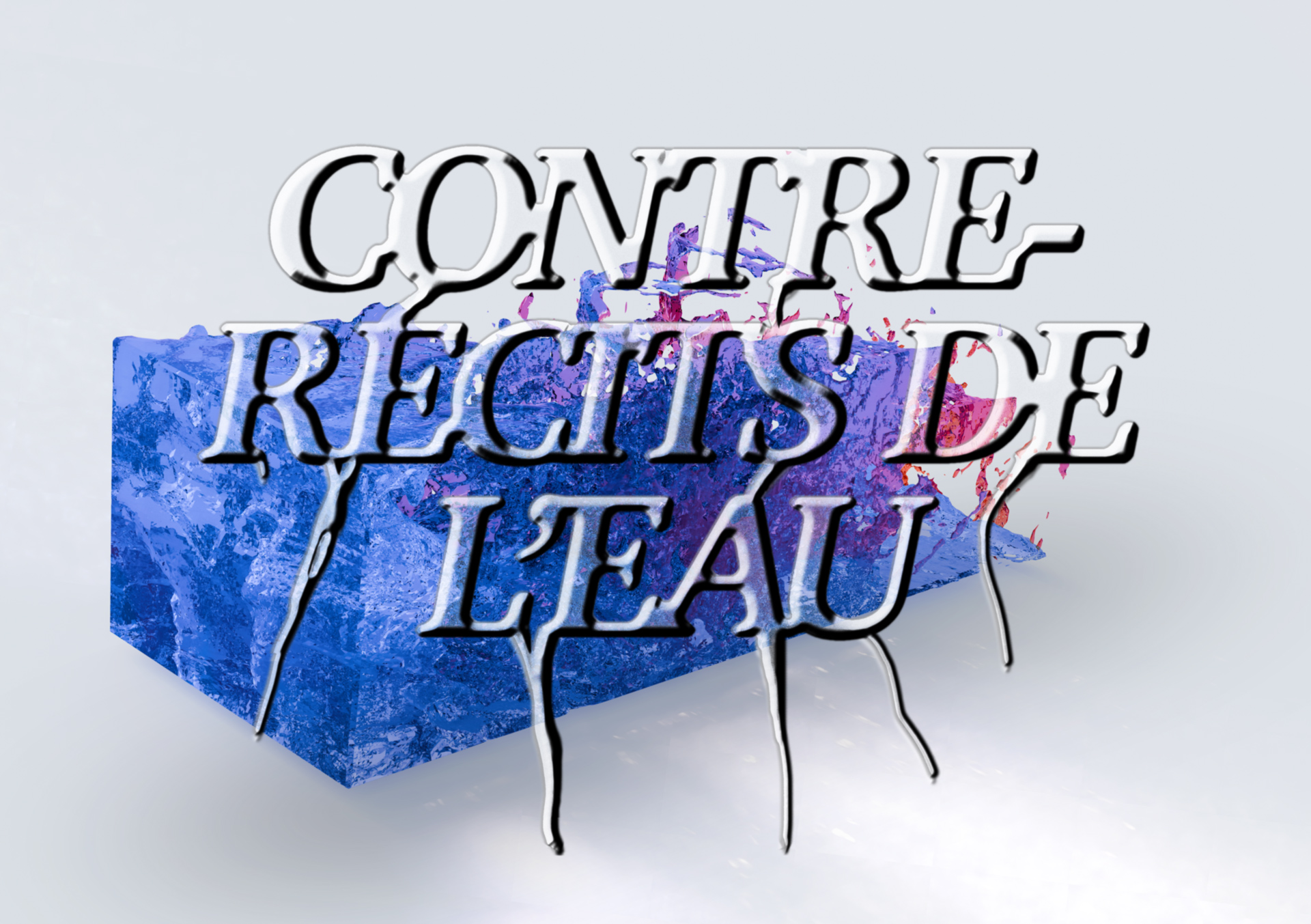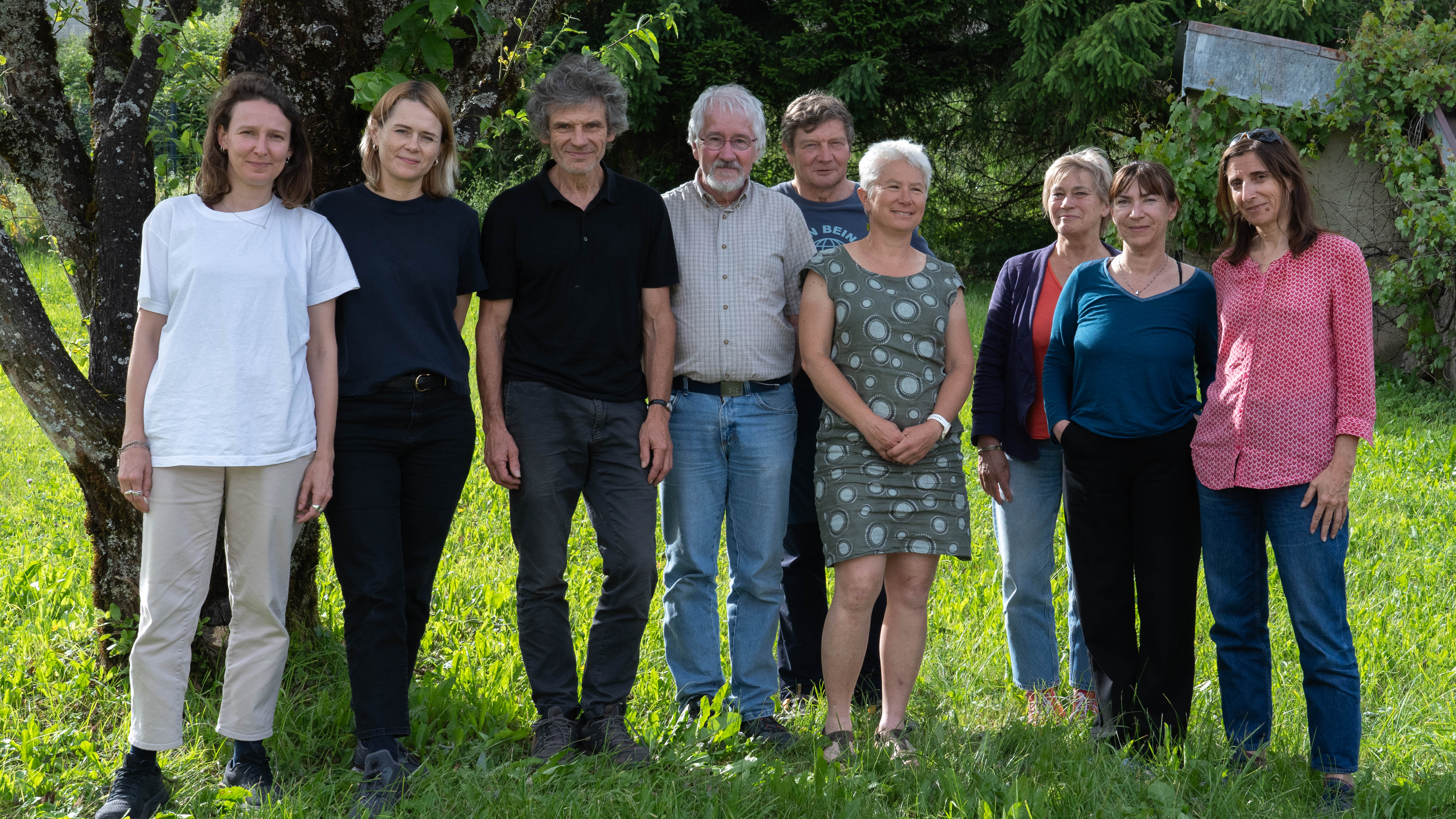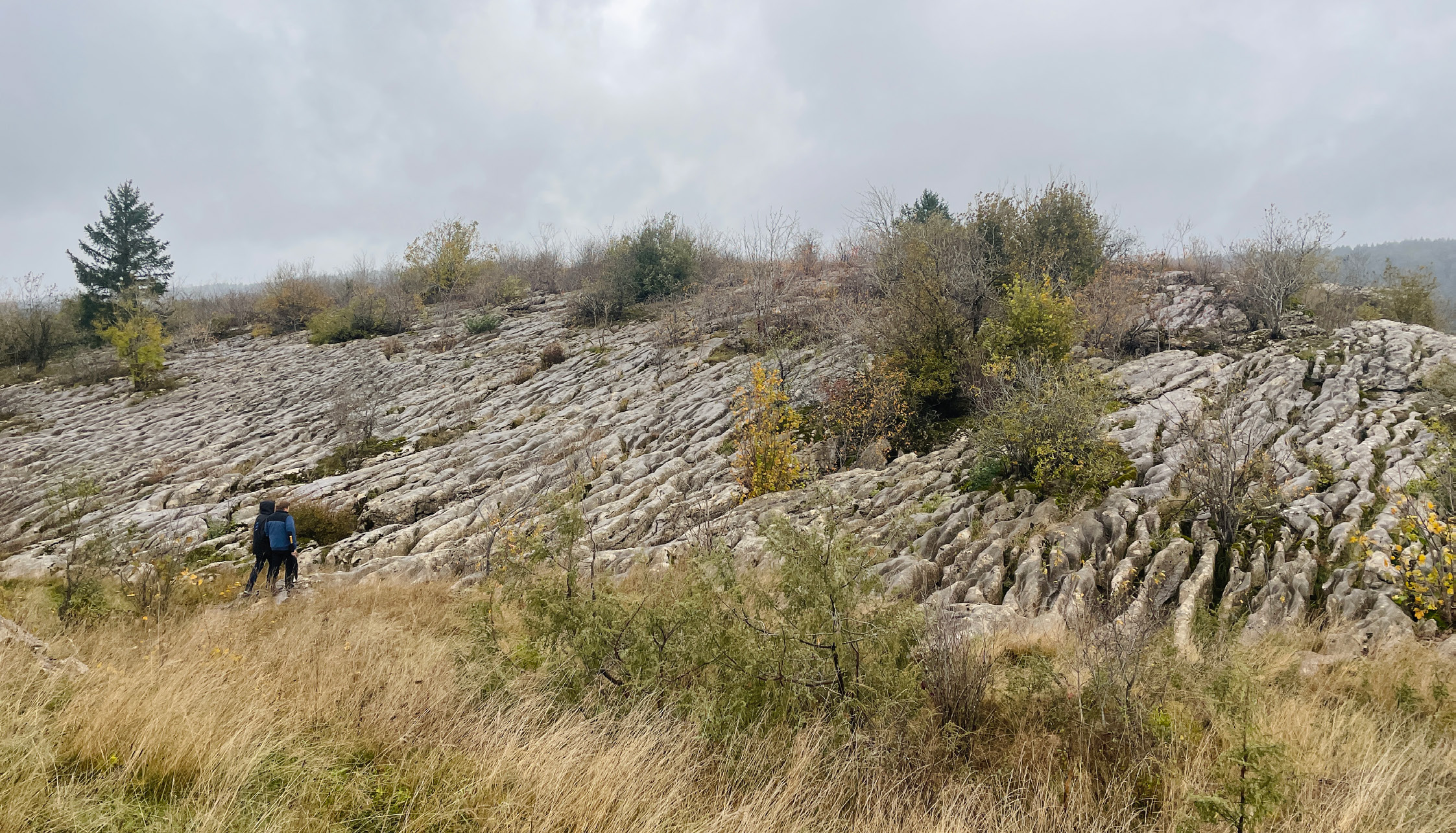‘Counter-Narratives of Water,’ a video by Disnovation.org, will be presented as the outcome of the Water Commons project

The video delves into the mysteries of water circulation in karstic environments, seeking to raise awareness about climate change, environmental management, and water as a shared resource.
| Where? | La Fraternelle cinema |
|---|---|
| Address | 12 rue de la Poyat, 39200 Saint-Claude |
| When? | 29.11.2024 |
| Schedule | 18h. |
Water, both a life-giving force and a silent witness to climate change, holds stories that are as deep and complex as the karstic landscapes through which it flows. In the Haut-Jura Regional Nature Park, water disappears into the fractured limestone, reemerging elsewhere in a dance that defies easy understanding. This mysterious cycle—a blend of geology, ecology, and shared responsibility—is the focus of Counter-Narratives of Water, a narrative video by the collective Disnovation.org.
The water cycle in karstic zones of the Haut-Jura Regional Nature Park commissioned from artists’ collective DISNOVATION.ORG by a group of stakeholders: Philippe Perrin, elected representative of La Rixouse and member of the Haut-Jura Regional Nature Park’s trade union commit- tee; three speleologists – François Jacquier, president of the San-Claudien Spéléo-Club, Anne Corriol, a teacher at Montmorot agricultural college and Wim Cuyvers, architect and forester.
Produced with the participation of the San-Claudien Spéléo- Club association as part of the New Patrons programme (mediation-production: À demeure association) and the Europe Creative programme involving Belgium, Spain and France with the support of the Daniel and Nina Carasso Foundation.

This prospective artistic approach looks at a phenomenon with many grey areas: the circulation of water in karstic environments, how it is understood and how it is represented. This is a major environmental issue today, but one that is little known and often misunderstood by the public.
Karst topography is a component of the Jura’s great fractured limestone massifs in which water circulates at great depths. Geographers, hydrogeologists and speleologists are studying this phenomenon, which has led to the launch of a number of initiatives to ensure the future of water resources in the region. While the water present in the karst supplies a third of the population, a heightened alternation of drought and intense rainfall makes it even more vulnerable.
The commission to artists aims to raise awareness of the climate changes taking place and help us better anticipate their consequences for the management, sharing and use of what we collectively consider a ‘common good’. How can we contribute to a better understanding of such a specific geology: a network that is difficult to understand let alone represent?
THE RESPONSE FROM DISNOVATION.ORG COLLECTIVE IN COLLABORATION WITH CLÉMENCE SEURAT
The proposed production takes the form of a narrative video. This visual investigation follows the course of water that seeps into the rock, disappears and resurfaces elsewhere; it traces the deep geological past, recounting anecdotes and collective stories. Karst landscapes exist as sentinel zones in the fields of agriculture, ecology and health, where we can observe a series of tensions linked to water in the present and the future. The collective is combining the resulting study with local and global stories and testimonies in order to open up debate and envisage the common ownership of water, now and in the future.
Discover "Counter-Narratives of Water" Through Two Special Activities:
Friday, November 29 - Film Screening and Discussion
At 6 PM, attend the screening of Counter-Narratives of Water at La Fraternelle cinema (12 rue de la Poyat, Saint-Claude).
The event will include a discussion with the artists following the film.Saturday, November 30 – Guided Karstic Trail
Starting at 9 AM, join a guided tour beginning at Villards-d’Héria town hall.
The trail will include visits to the archaeological site Perte du Lac d’Antre in the morning and, weather permitting, Lac de l’Abbaye at 3 PM.
Registration is required via a_demeure@orange.fr or 06 33 56 50 26.
With the option to bring a picnic to enjoy at the salle communale.

DISNOVATION.ORG is a research collective founded in Paris in 2012 comprising core members Maria Roszkowska (pl/fr), Nicolas Maigret (fr) and Baruch Gottlieb (ca/de) (fr) that fuses contemporary art, research and hacking to critically translate complex eco-social debates into operational and provocative exhibitions. It creates radical works of art staged as large-scale laboratory experiments focusing on energy, ecology and the economy that function as catalysts for creating futures that diverge from the dominant narratives. The collective’s exhibitions, books and videos permeate global cultural landscapes, fostering critical dialogue at the intersection of artistic, political and scientific enquiry.
Clémence Seurat is a publisher, arts programmer and associate researcher at the Sciences Po médialab. She explores the fields of political ecology and techno-criticism, teaches at Sciences Po and lectures at art schools giving regular conferences. clemenceseurat.com

The Art Living Lab for Sustainability project, developed as part of Europe Créative (CREA EU), supports alliances between stakeholders in European territories with the aim of developing artistic responses to questions of eco- responsibility and complex environmental challenges for three types of natural common resources: clay in Flanders, earth in Galicia and water in the Jura. Three organisations approved by the New Patrons programme are supporting this approach: De Niewe Opdrachtgevers in Belgium, Concomitentes in Spain and New Patrons Society in collab- oration with association À demeure in France.
Haut-Jura Regional Nature Park supports this programme, providing expertise and skills in water quality, the sharing of water resources, knowledge of local stakeholders, artists and experts. It also facilitates research and meetings.
New Patrons programme enables citizens who are confronted with social or regional development issues to involve contemporary artists in their concerns through commissioned works. Its originality is based on a partnership between three key players: the artist, the commissioning citizen and the cultural mediator approved by the New Patrons Society, together with public and private partners involved in the project. Since 2020, the New Patrons Society association in France has federated a network of mediators and spearheaded the development of this initiative with the support of the Ministry of Culture and Fondation de France.
